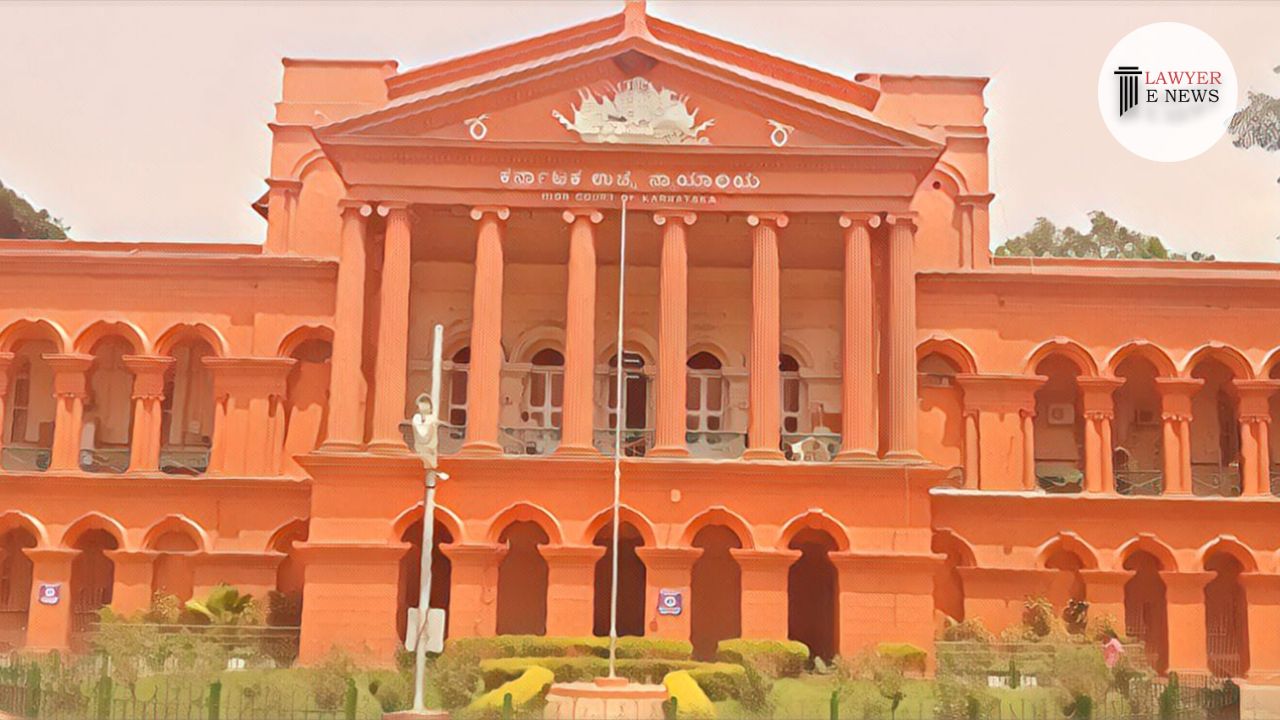-
by Admin
15 February 2026 5:35 AM



The High Court of Karnataka has mandated the Sub-Registrar of J.P. Nagar to register a sale certificate issued under the SARFAESI Act, overriding objections based on pending Income Tax dues against the original property owners. The judgment, delivered by Justice M. Nagaprasanna, emphasizes that the rights of secured creditors under the SARFAESI Act take precedence over other statutory claims, including tax dues.
The petitioner, Sri T. Bharathgowda, emerged as the successful bidder in a public auction conducted by Canara Bank, acquiring a property previously owned by borrowers who had defaulted on their loan. The sale certificate was issued on 30th September 2022. Despite fulfilling all necessary registration requirements, the petitioner faced refusal from the Sub-Registrar of J.P. Nagar, citing pending Income Tax dues against the original owners.
Priority of Secured Creditors: Justice Nagaprasanna underscored the statutory priority of secured creditors, referring to Sections 26E and 35 of the SARFAESI Act. “The provisions of the SARFAESI Act will have effect, notwithstanding anything inconsistent therewith contained in any other law,” the court noted, emphasizing the Act’s overriding nature. The judgment reiterated that the debts due to secured creditors shall be paid in priority over all other debts, including taxes.
Refusal of Registration by Sub-Registrar: The court scrutinized the reasons behind the Sub-Registrar’s refusal to register the sale certificate, citing non-compliance with the reasons enumerated under Section 71 of the Registration Act and Rule 171 of the Karnataka Registration Rules. “The refusal to register a document based on reasons not listed in Rule 171 is invalid,” the court stated, highlighting that statutory dues pending against borrowers are not valid grounds for such refusal.
Justice Nagaprasanna referenced several Supreme Court judgments to support the decision, notably Punjab National Bank v. Union of India and Central Bank of India v. Siriguppa Sugars & Chemicals Ltd. These cases affirm the precedence of secured creditors’ rights over statutory dues, such as those under the Central Excise Act and Income Tax Act. The judgment quoted from Punjab National Bank v. Union of India: “The dues of the secured creditor, the Bank or any other financial institution, will have priority over the dues of the Central Excise Department under the Central Excise Act.”
Justice Nagaprasanna remarked, “The provisions of the SARFAESI Act, 2002, even after insertion of Section 11-E in the Central Excise Act, 1944 w.e.f. 8-4-2011, will have an overriding effect on the provisions of the Central Excise Act.” This observation highlights the consistent judicial stance on the precedence of secured creditors’ rights.
Conclusion: The High Court’s decision mandates immediate registration of the sale certificate by the Sub-Registrar and directs the State Government to issue a circular clarifying the registration obligations under the SARFAESI Act. This judgment reinforces the legal framework prioritizing secured creditors, setting a precedent for future cases involving similar disputes. The court’s directive for a clarificatory circular aims to prevent unnecessary litigation and ensure compliance with statutory provisions, thereby streamlining the registration process for secured transactions.
Date of Decision: 28th May 2024
Sri T. Bharathgowda v. State of Karnataka
